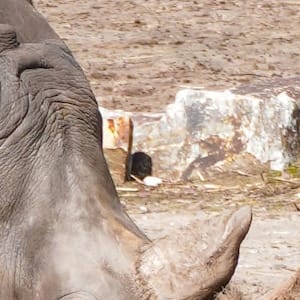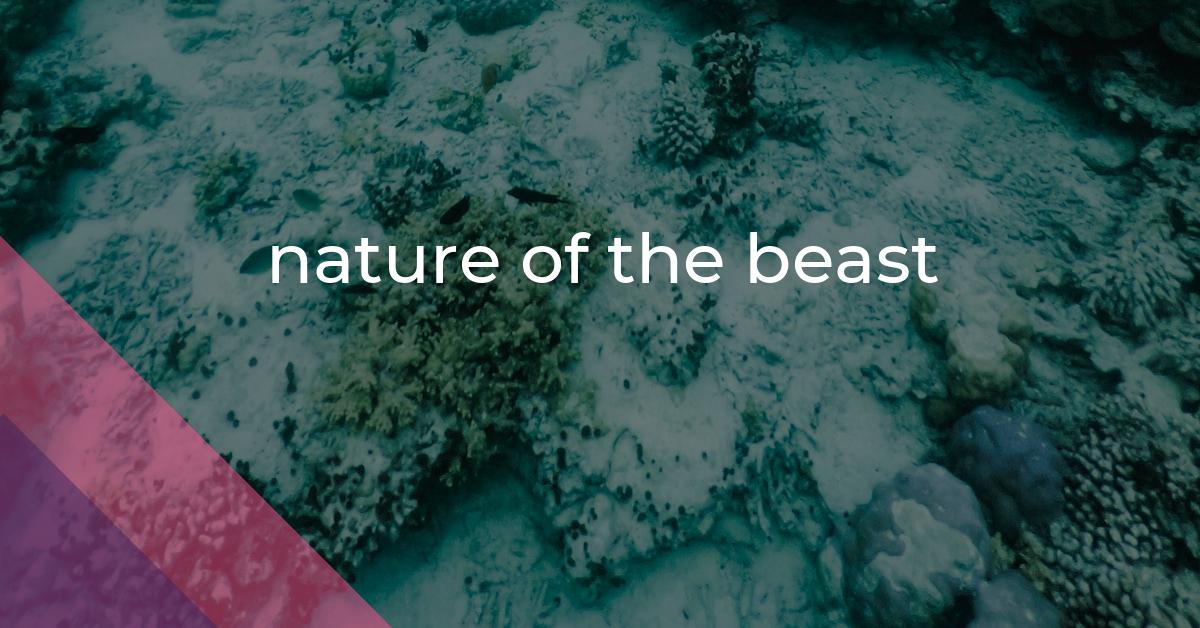nature of the beast: Idiom Meaning and Origin
What does ‘nature of the beast’ mean?
The idiom "nature of the beast" refers to the inherent qualities or characteristics of a particular situation or thing. It suggests that certain behaviors or outcomes are to be expected because they are essential to the very nature of that situation or thing.

Idiom Explorer
The idiom "the thing of it" is used to express the difficulty or complexity of a situation or problem. It emphasizes the challenging aspect of a particular matter.
The idiom 'second nature' means something that is so familiar or habitual to a person that it feels natural and effortless. It refers to a behavior or skill that has been practiced and repeated so often that it becomes automatic, like a reflex.
The idiom "out of character" means behaving in a way that is not typical or usual for a person, often surprising others due to the deviation from their usual behavior.
The idiom "out of a nightmare" means that something is extremely terrifying, disturbing, or unpleasant, and can refer to a situation, event, or experience that is reminiscent of a bad dream.
The idiom "one of those things" refers to a situation or event that is out of one's control, often unexpected or difficult to explain or understand.
The idiom "of the same stripe" means that two or more people or things are similar or have similar qualities, usually in a negative or undesirable way.
The idiom "of an" is used to emphasize a particular quality or characteristic of someone or something. It indicates that the quality being mentioned is extremely notable or outstanding.
The idiom "of all things" is used to express surprise or disbelief about something unexpected or unlikely. It emphasizes the unexpectedness of the thing being referred to.
The idiom "of a kind" is used to describe something or someone that is similar to something or someone else, but not exactly the same. It implies a resemblance or similarity between two things, but also highlights their unique qualities or differences.
Enigmatic Unveiling
The idiom "nature of the beast" is a commonly used phrase that has become ingrained in the English language. It is often used to convey the inherent characteristics or qualities of something or someone, particularly when those characteristics are difficult to change or control. The phrase suggests that certain behaviors or characteristics are an intrinsic part of something or someone, and that trying to change or control them is futile. It implies a sense of resignation or acceptance, acknowledging that these inherent qualities cannot be easily altered.
One of the key aspects of this idiom is its use of the word "beast." In this context, "beast" refers to an animal or creature, typically one that is wild, untamed, or primal. The term "beast" carries connotations of power, instinct, and unpredictability. By associating humans with the untamed and unpredictable nature of a beast, it suggests that humans possess both civilized and primal instincts.
The origins of the idiom are somewhat obscure, with no definitive source pinpointed. However, it is believed to have originated from the Bible, specifically from the Book of Revelations, which describes the nature of certain beasts as symbolic representations of powerful forces. The idiom has evolved and expanded to be used more broadly, being employed in everyday conversations, literature, and media to describe various situations and individuals.
One of the related idioms to "nature of the beast" is "better nature". This phrase suggests that a person has an innate sense of goodness or morality, despite any negative or undesirable traits they may possess. It implies that individuals have the capacity to make choices based on their better, more virtuous instincts. The idiom "nature of the beast" can be related to "better nature" by acknowledging the duality of human nature, with both civilized and primal instincts at play. It recognizes that individuals have the potential to rise above their inherent characteristics and act in accordance with their better nature.
Another related idiom is "one of those things", which is used to describe an event, circumstance, or situation that is difficult to explain or understand. It suggests that some things are simply part of the natural order, and cannot be easily changed or controlled. Similarly, the idiom "nature of the beast" implies that certain qualities or behaviors are inherent and cannot be easily altered. It emphasizes the fact that some things are just "one of those things" that are a fundamental part of the entity in question.
The idiom "creature of habit" is also related to the concept of the "nature of the beast", as it describes a person who tends to follow the same routine or behavior patterns. It implies that individuals have a tendency to stick to what they know and are comfortable with, even if it may not always be the best or most efficient option. This idiom reinforces the idea that certain behaviors are deeply ingrained and difficult to change, echoing the sentiment of the "nature of the beast" idiom.
Additionally, the idiom "law of the jungle" is another related expression. It refers to a situation or environment where only the strongest or most cunning survive, often used metaphorically to describe a competitive or cutthroat environment. The idiom "nature of the beast" can be applied in a similar way, highlighting the untamed and unpredictable nature of certain individuals or situations. It suggests that in some cases, it is the inherent characteristics or qualities of the "beast" that determine the outcome, rather than any external factors or rules.
Lastly, the idiom "second nature" can also be related to the "nature of the beast". It is used to describe a behavior or skill that has become so ingrained or automatic that it feels instinctual. This idiom emphasizes the idea that certain behaviors or characteristics can become so deeply rooted in a person or entity that they are seen as natural or instinctual. This aligns with the concept of the "nature of the beast" idiom, which suggests that certain qualities or behaviors are part of the inherent nature of something or someone.
The idiom "nature of the beast" is a widely recognized phrase that conveys the inherent characteristics or qualities of something or someone. It emphasizes the untamed, primal nature of a beast and suggests that these characteristics are a fundamental part of the entity in question. While its origins remain unclear, the idiom has become deeply ingrained in the English language and is used to describe a diverse range of scenarios and individuals. Despite its prevalence, the idiom's interpretation is subjective and context-dependent, allowing for a multitude of possible meanings and applications.
Example usage
Examples of how the idiom *nature of the beast* can be used in a sentence:
- She didn't understand why her cat always scratched the furniture, but she knew it was just the nature of the beast.
- He was frustrated with the long hours and demanding clients in his job, but he knew it was just the nature of the beast in the finance industry.
- Driving in rush hour traffic can be frustrating and stressful, but it's just the nature of the beast when you live in a big city.
More "Idioms" idioms



